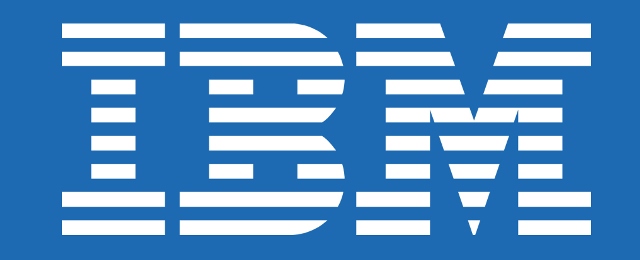Broadcasting
C-Suite Executives Declare One Vendor Approach to Cloud is Dead – IBM Study

According to the results of IBM’s new global study on cloud transformation that surveyed almost 7,200 C-suite executives across 28 industries in 47 countries – including more than 140 in Nigeria – there has been a drastic shift in business needs.

The study, conducted by IBM Institute for Business Value (IBV) in cooperation with Oxford Economics, revealed thatno respondents in Nigeria reported using a single private or public cloud in 2021, down from 38 percent in 2019 – establishing hybrid cloud as the dominant IT architecture.
The findings indicate that the cloud market has entered the hybrid, multicloud era and concerns around vendor lock-in, security, compliance and interoperability remain paramount.
The study also revealed that 59 percent of respondents noted the lack of interoperability among clouds was an obstacle to improving business performance in some or most parts of their cloud estate.
“Organisations across Nigeria have shown increased confidence in hybrid cloud models to deliver greater innovation while reducing costs, driving efficiency and ensuring security and compliance. This will drive the next wave of digital transformation for organisations here as they set out to deliver superior customer experiences,” says Dipo Faulkner, General Manager IBM West Africa.
The study found that a majority of respondents recognised that comprehensive to advanced cloud capabilities were required for the successful execution of digital initiatives – with 77 percent stating that this was crucial to building ecosystem platforms and 86 percent revealing this was required to improve customer experiences.
While the hybrid cloud approach has taken hold, respondents in Nigeria revealed that technology debt or legacy brownfields were the biggest obstacles to improving business performance – with 68 percent revealing that this was an obstacle in some or most parts of their cloud estate.
Cyber threats are at an all-time high 1
Infrastructure complexity is creating cracked doors that cybercriminals are exploiting. The study revealed the importance of data security, as 87 percent of respondents said data security being embedded throughout the cloud architecture is important or extremely important, in most cases, to successful digital initiatives.
Companies are denouncing vendor lock-in
According to the study, nearly 83 percent of respondents said workloads being completely portable with no vendor lock-in is important to the success of their digital initiatives. Only 50 percent of respondents reported battling with vendor lock-in, stating this is an obstacle to improving business performance in some or most parts of their cloud estate.
Public cloud adoption is evolving towards industry clouds
The study found that nearly 56 percent of respondents cited industry-related regulatory compliance as an obstacle to the business performance of their cloud estate.
The study revealed that enterprises need to assess how they use the cloud in terms of adoption, velocity, migration, speed, and cost savings opportunity. Other recommendations include:
- Focus on security and privacy – determine where your critical workloads reside and scrutinize who and what has access to them. Regularly test that security controls and privacy policies are being adhered to, but also that improperly configured assets and software vulnerabilities are being promptly addressed.
- Ask which workloads should move to the cloud – take inventory of the IT environment to successfully determine which workloads and applications will yield the most value in the cloud and which are better suited to stay on-premises.
- Make data work for you – analyze workloads using AI driven tools and best practices to determine where and how to put them in the right place for the right reason.
- Set a tactical approach – address the technology trade-offs, such as selecting the best approach to modernize specific applications and manage important issues like security, governance, and disaster recovery.
- Determine the right team – put a cross-disciplinary team of people to work rethinking how your enterprise creates value for its customers.
Broadcasting
Big Brother Naija Season 10 to Premiere July 26 with Record ₦150m Grand Prize

MultiChoice Nigeria, today announced the highly anticipated return of Africa’s biggest reality television show, Big Brother Naija, for its landmark 10th season. Set to premiere over two nights on Saturday, July 26 and Sunday, July 27, 2025, the new season promises 10 weeks of captivating drama, strategic gameplay, and unparalleled entertainment, culminating in the grand finale on Sunday, October 5, 2025.

The audition process for this milestone season was meticulously designed to unearth the most engaging and dynamic personalities from across Nigeria. Audition registrations were held from May 3rd to May 7th, 2025, and saw an overwhelming response, followed by rigorous in-person auditions conducted in Lagos, Abuja, and Enugu from May 16th to May 18th, 2025.
Speaking on the upcoming season, Busola Tejumola, Executive Head, General Entertainment, MultiChoice Group, expressed her excitement: “Today we are not just announcing another season, we are celebrating a legacy.”
While the official theme for Season 10 will be unveiled on the premiere night, viewers can anticipate a fresh wave of excitement. The beloved Ebuka Obi-Uchendu is returning as host, guiding viewers through every twist and turn of the season. This 10th season also has the highest prize at stake – valued at a whopping N150million.
Fans can catch the premier live on July 26 and 27 exclusively on Africa Magic Showcase, Family and Showmax at 7 PM WAT. The Sunday live eviction shows will also air exclusively on these channels. The 24/7 live stream will be available on DStv Channel 198, GOtv Channel 49, and on Showmax.
“BBNaija has become more than just a television show; it is a living, breathing cultural force. It has given voice to a new generation of talent, creatives, entertainers, and the influencer community, and it has refined what homegrown entertainment can achieve when it is done at scale with intention and ambition,” added Tejumola.
With a two-night opening live show for Big Brother Naija Season 10, the season is poised to build upon the legacy of its predecessors, with fans expecting a more dynamic and entertaining experience. Still speaking on what the season holds Dr. Tejumola said “Today we are not just announcing another season, we are celebrating a legacy. From the very first time we introduced Big Brother Naija in 2017, we had an inkling that we had something special. What we couldn’t fully imagine then is how deeply the show would resonate not only in Nigeria but across Africa and in the global diaspora, where our stories continue to connect people to home.”
This milestone season for the iconic show is not without the usual lineup of sponsors. The gold sponsor for the 10th season of the show is Guinness Nigeria. Other sponsors include Smirnoff, Gordons, HFM, Pepsi, Aquafina, Supakomando, Tolaram Group, Bet King, Golden Penny Foods, Haier Thermocool, Checkers custard, and Innoson Motors, among others.
Viewers can catch all the live action and special broadcasts on DStv Channel 198, GOtv Channel 49, and Showmax. The live Sunday eviction shows will air exclusively on Africa Magic Showcase (DStv Channel 151, GOtv Channel 8), Africa Magic Family (DStv Channel 154, GOtv Channel 7) and on Showmax.
DStv and GOtv subscribers can also watch the show on the go using the DStv and GOtv Stream apps available on the Google Play Store and IOS App Store.
Broadcasting
GEFAS to Launch Innovation Hub in Anambra, Backs Soludo’s Digital Vision

Geeks and Founders Alliance for Soludo (GEFAS), a tech-driven network of young professionals, is set to unveil its operational hub in Anambra State as part of efforts to deepen digital engagement and community outreach.

The launch, scheduled for July 17, 2025, will take place at 10 Uche Ekwunife Crescent, Iyiagu Estate, Awka, and is expected to serve as a nerve centre for collaboration, innovation and support for Governor Chukwuma Soludo’s smart city agenda.
Convener of GEFAS, Mr Fred Agbata, said the initiative reflects the group’s commitment to digital progress and grassroots mobilisation.
“This space reinforces our support for Governor Soludo’s vision of a smart, prosperous Anambra. It’s also a demonstration of what young innovators can achieve when united behind a bigger goal—the re-election of Governor Soludo,” he said.
Agbata added that the hub would provide a platform for tech enthusiasts, entrepreneurs and creatives to co-create solutions that address local challenges and promote inclusive development.
GEFAS has called on stakeholders, youth groups and members of the public to attend the launch and engage with the opportunities the space will offer.
Broadcasting
Over 5,600 Pupils to Benefit as ATC, ProFuturo Partner on Tech-Driven Learning

American Tower Corporation (ATC) Nigeria and the ProFuturo Foundation have announced a strategic partnership aimed at transforming the educational sector through digital innovation and technology.

The programme, which is being implemented in conjunction with the Kukah Centre, is expected to benefit over 5,600 school children and 34 teachers across 11 schools in Kano, Kebbi and Taraba states.
The initiative is part of a broader global collaboration between American Tower and ProFuturo Foundation, targeting education gaps in seven African and Latin American countries.
Speaking at the signing ceremony, ATC Nigeria Chief Executive Officer, Mr Pieter Van Der Westhuizen, said the partnership was aligned with the company’s Digital Communities programme, which facilitates technology-driven learning, financial literacy for adults and access to healthcare services in underserved areas.
“At ATC Nigeria, we are proud to support this impactful collaboration, which brings digital tools directly into classrooms. This partnership is not just about equipment—it’s about giving children the future they deserve,” he said.
General Manager of ProFuturo Foundation, Ms Magdalena Brier, described the partnership as a crucial step towards bridging the digital divide and empowering vulnerable communities.
“This alliance reinforces our mission to transform lives by improving access to education and digital tools. Every child and teacher reached through this programme is a testament to what we can achieve together,” she said.
Each school will be equipped with a digital learning kit, which includes computers, tablets, routers, projectors and other essential components tailored to foster interactive learning—even in areas with limited connectivity.
The initiative seeks to strengthen innovative teaching practices and promote inclusive education through digital transformation, with active support from local authorities who were present at the official launch.

 E-Financial2 days ago
E-Financial2 days agoUBA’s LEO Becomes Africa’s First Chatbot to Enable Cross-Border Payments

 News2 days ago
News2 days agoUN Appoints Sa’id, Nigerian to Nuclear Panel

 E-Business2 days ago
E-Business2 days agoNIMC Enrolls 122m for NIN, Cuts Extortion by 40 Percent

 Telecom2 days ago
Telecom2 days agoMTN Urges Nigerian to Regards Telecom Infrastructure as National Assets

 General News2 days ago
General News2 days agoAppeal Court Nullifies Registration of ‘KPMG Professional Services’

 Telecom22 hours ago
Telecom22 hours agoMTN Nigeria Rewards 1,500+ Winners with ₦290m in Mega Billion Promo

 Telecom2 days ago
Telecom2 days agoBitget Launches $6M Global Crypto Trading Contest with New Competitive Segments

 E-Financial2 days ago
E-Financial2 days agoSEC to Introduce USSD Codes to Fight Ponzi Schemes

























